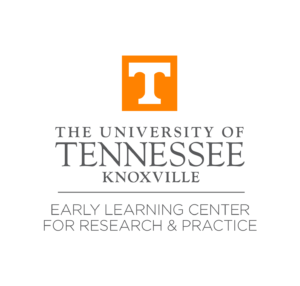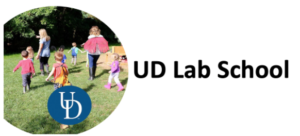Pandemic Pivoting in Teacher Preparation Lab School Settings
Authors:
Monica Miller Marsh, Associate Professor of Early Childhood Education and Director of the Child Development Center at Kent State University
Adonia Porto, Lead Preschool Teacher at the Child Development Center
Robyn Brookshire, Director of the Early Learning Center for Research and Practice at the University of Tennessee, Knoxville
Kathryn Humber, Demonstration Teacher at the Early Learning Center for Research and Practice at the University of Tennessee, Knoxville
Kathryn Kidd, Associate Director at the Early Learning Center for Research and Practice at the University of Tennessee, Knoxville
Katie Pollock, Nature Preschool Teacher at the University of Delaware Lab School
Dorit Radnai-Griffin, Director of the University of Delaware Lab School
Jennifer Gallo-Fox, Associate Professor, Human Development and Family Sciences, University of Delaware
As the novel coronavirus of 2020 started moving across the globe, it left teacher education programs in challenging situations. One of the critical concerns for prospective teachers has been completing field experience requirements to become certified teachers (Nuland et al., 2020). Pre-service teacher education programs worldwide were forced to create innovative, remote teaching strategies that would maintain the integrity of their programs (Keefe, 2020). The following vignettes illustrate examples of how three laboratory schools continued to support early childhood teacher preparation programs when prospective teachers could not complete their field experiences in schools.
At the Kent State University Child Development Center, one lead preschool teacher opened her classroom to undergraduate students by agreeing to be videotaped each day and leading weekly discussions about her pedagogy. The preschool videos supported assignments across multiple teacher education courses. At the Early Learning Center at the University of Tennessee – Knoxville, personnel shifts allowed one teacher to primarily lead student debriefings, allowing other lead teachers to manage increased classroom health and safety responsibilities. Previous documentation resources were pooled to create a video library that was used in multiple courses to present behavior guidance strategies and interactions. At the University of Delaware Lab School, undergraduate early field placements were remote. Student observation and participation in activities with children inside classrooms and outside in the woods was supported by enhanced wifi and iPads, and pre-session and post-session meetings with in-person teachers and student teachers.
 Kent State University Child Development Center
Kent State University Child Development Center
Our school is an International Baccalaureate early years program that serves Kent State faculty, staff, students, and the greater Kent community. Children attend our school from 18 months of age through kindergarten. The Covid-19 pandemic directly affected the number of children and undergraduate students we could serve this year. To accommodate as many undergraduate students as possible, we video recorded the same classroom community throughout the school day four days a week and hosted weekly reflection meetings to debrief observations on Fridays. During this time, we developed knowledge and understandings of the Child Development Center’s mission, philosophy, and examples of best practices. The videos were stored on our protected online platform, Blackboard, to be accessible for unlimited viewing opportunities for students. Early Childhood instructors were able to modify assignments to meet the needs of our virtual field placement.
Below are undergraduate reflections from collaborating regional campuses:
“Even though we have not met these students in person, watching these video clips each week and reflecting on what we have seen, definitely makes me feel as if I have…Another thing that I noticed this week was that the teacher gathered a few of the students to participate in a farewell video to us. This was absolutely awesome to watch, it was interesting to see what some of them wanted to say to us!”
“I also noticed that during their morning meeting, the students were very cooperative with listening and waiting their turn to speak. The children in my opinion have shown improvement from the first weeks of watching the videos. It was fun to see and notice little improvements with the students as time had passed.”
 The University of Tennessee Early Learning Center for Research and Practice
The University of Tennessee Early Learning Center for Research and Practice
The UT Early Learning Center, like lab schools across the country, shut down mid-Spring semester and had to pivot immediately to provide a very different experience for our practicum students. As Summer semester approached and we recognized that students would this time begin a practicum course with no field placement site, we again had to pivot…reimagining and redesigning our plan in order to support students, so that they could gain the insight and experience to come to know and understand young children. Our first reimagining was structural, what could we do to at least have the hope of some classroom, hands-on experiences for these students? Garnering the support of our department head and our college advising center, we reached out to each student to determine the possibility of splitting the course into a Summer semester section and a Fall semester section. With revised schedules generated by the advising center, we were fortunate each student was able to accommodate this alternate arrangement. This was the critical framework we needed to begin our new journey.
Starting the summer semester with remote engagement gave us the chance to utilize the collective strengths and resources of our mentoring teachers. However, we needed to return in person to our early childhood classrooms in July, and, unfortunately, we did not feel we could introduce the practicum students into the classrooms when our focus was on establishing the safest environments for our young and vulnerable population. With our staffing resources soon to be refocused to returning safely under pandemic protocols, we now had to consider how support and engagement with the practicum students could continue.
With the pandemic came many challenges and necessary shifts in our daily operations at the UT Early Learning Center. An early challenge that we encountered was how to support the practicum students we had over the summer semester. Since we were not operating in person at that time and knew that their practicum experience would be split to span two semesters, we chose to spend the summer focusing on content that is relevant to the early years of their birth to third grade licensure. This gave us the time to emphasize the importance of taking care of yourself as a teacher, explore trauma informed teaching practices, and go in depth with understanding the developmental needs of children birth to six years old.
Kathryn Humber, a demonstration teacher, took on the role of leading virtual mentoring with practicum students, to replace some of the work that on-site demonstration teachers would typically do as mentors: “While many of our regular staff prepared to return in July, we were not ready for our practicum students to join us in person until the middle of the fall semester. Teaching in the middle of a pandemic was both physically and emotionally taxing, and adding in many of our mentoring tasks was more than we, as a staff, could handle. This presented us with a need to redistribute the roles and responsibilities of the mentoring teachers. In some ways, we were fortunate that I needed to stay home longer as this allowed me to become the mentoring teacher who could take on many of the tasks that were too much for the other demonstration teachers to manage. I was able to take on leading our content discussions on teacher self-care and trauma informed practices, guidance, and preschool and kindergarten development. During the fall semester, I was able to support the practicum students by leading biweekly content discussions on trauma informed practices, guidance, and teacher decision making. I was also able to support the other seven mentoring teachers by meeting with each student to review video observations together and by providing feedback on the students’ written observations, reflections, and documentation. By managing the feedback and suggestions for these assignments, it allowed the other demonstration teachers to focus on the classroom needs and in the moment feedback for our student teachers.”
 The University of Delaware Lab School
The University of Delaware Lab School
On any given day, the University of Delaware teachers are teaching young children, coaching and mentoring undergraduates while modeling best practices, connecting with in-service teachers, and contributing to the Department of Human Development and Family Sciences. When COVID restrictions limited the number of in-person undergraduates allowed, we had to think creatively while staying flexible to reach students learning remotely. Thanks to university support, we were able to expand the Wi-Fi capabilities and purchase the technology needed to Zoom our sophomore students into both our indoor and outdoor learning environments.
Utilizing iPads on tripods and portable MIFI devices, we were able to stay connected to all of our undergraduates in a unique way. We continued our pre-session with students virtually. During pre-session, we discuss what to expect for the day and what they would be seeing. We would also come together at the end of their observations to unpack what they observed. This gave us time to get to know one another, build relationships, and stretch undergraduates’ knowledge of the importance of play. The students got to know the children they were observing on Zoom, through both their observations and interactions with the children. Additionally, co-requisite coursework was modified to support student engagement and focus when online, and they designed lesson plans for the children in the classrooms which were taught by and debriefed with the student teachers.
A second year ECE major, summed up the experience perfectly,
Being able to actually attend my placement, even though it is virtual, has been a huge highlight this fall, and I look forward to it every week! I was so scared after last semester that I would miss out on another field experience, so the fact that I am able to watch the children grow in their learning while observing a new setting really means a lot to me. These virtual observations have taught me that as a teacher, it is so important to be resilient and determined when you are faced with new or unusual circumstances. Who knows, maybe I’ll even become a nature preschool teacher!
Looking ahead to the future
As progressive laboratory schools tasked with the challenge of responding to the needs of children, families, and educators in our field, the pandemic pushed us to modify existing practices in order to meet the needs of remote students. We will continue to utilize parts of these innovative strategies in our early childhood programs in the future. Our responses to the challenges to teacher preparation during the pandemic may inform how other early childhood programs could benefit from utilizing exemplary remote observation and teaching sites hosted by laboratory schools.
Please feel free to reach out to our programs if you would like to learn more about this topic and our work in other areas of research, teaching, and practice.
University of Delaware Lab School:
University of Tennessee Early Learning Center:
Kent State University Child Development Center:
https://www.kent.edu/ehhs/centers/cdc
References:
Nuland, S., Mandzuk, D., Petrick,K.T., & Cooper, T. (2020). COVID-19 and its effects on teacher education in Ontario: A complex adaptive systems perspective. Journal of Education for Teaching 46(4), 442-451 https://www.tandfonline.com/doi/full/10.1080/02607476.2020.1803050
Stringer, E. (2020). Learning to Practice Digitally: Advancing Preservice Teachers’ Preparation via Virtual Teaching and Coaching. Journal of Technology and Teacher Education, 28(2), 223-232 https://www.learntechlib.org/primary/p/216145/.